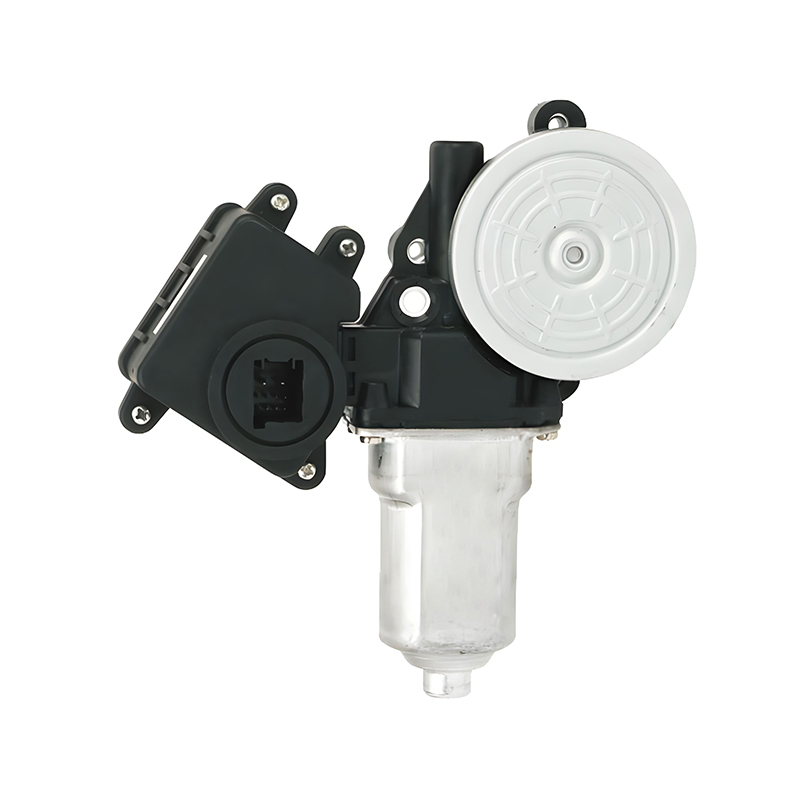As electric vehicles continue to reshape the automotive landscape, the demand for quieter and more efficient components has seen steady growth. Among these components, the window motor for electric cars has become a focus of attention due to its role in enhancing passenger comfort and overall vehicle performance. The push for better window motor for systems aligns with the broader trend toward reducing noise pollution and increasing energy efficiency in modern vehicles.

The window motor for electric cars must meet several specific criteria to satisfy manufacturers and consumers alike. Quiet operation is essential, especially as electric vehicles lack the traditional engine noise that often masks mechanical sounds. Without that background noise, any humming or vibration from a window motor for system can become noticeable and potentially reduce the sense of refinement within the cabin. Consequently, the engineering behind these motors now emphasizes materials and designs that less sound without compromising functionality.
Alongside quietness, efficiency is a major factor driving innovations in window motor for technology. Electric vehicles rely on battery power, so every component that draws electricity affects the overall range. Window motor for mechanisms that consume less energy help extend the driving distance, which remains a key consideration for EV owners. This has encouraged the development of motors that balance performance with energy savings, making the window motor for an important part of the vehicle’s electrical system.
Interestingly, these advancements in window motor for technology often coincide with improvements in other automotive motors, such as the car seat adjustment motor. The car seat adjustment motor plays a crucial role in passenger comfort by allowing precise seat positioning. As with window motors, there is an increasing emphasis on quiet and efficient operation for car seat adjustment motors. Both types of motors must perform smoothly and reliably while consuming small power and generating little noise, reflecting the higher standards set by electric vehicle designs.
Electric vehicle manufacturers and suppliers have recognized that integrating quiet and efficient motors is more than a technical challenge; it directly impacts user satisfaction. Drivers expect seamless operation when adjusting seats or rolling windows, and any disruptive noise or lag can diminish the experience. The growing demand for window motor for units that meet these expectations has pushed suppliers to explore advanced materials, refined gear mechanisms, and improved electronic controls. Such developments often translate well into enhancements for car seat adjustment motors, creating synergy between these two components.
Another dimension contributing to the increasing need for better window motor for systems is the expansion of electric vehicle segments. As EVs become available in a wider range of sizes and styles, from compact city cars to larger SUVs, the requirements for window motors diversify. Smaller vehicles may prioritize compact and lightweight window motor for designs, while larger vehicles might require motors capable of handling heavier glass panels quietly. The car seat adjustment motor also varies accordingly, adapting to different seat types and configurations while maintaining consistent performance standards.
Moreover, the durability of window motor for components remains a critical factor. Electric vehicles often emphasize longevity and reliability to reassure consumers investing in newer technology. Ensuring that window motor for units can withstand repeated use over the vehicle’s lifespan without degradation is essential. This focus on durability parallels efforts to improve car seat adjustment motors, where smooth and consistent operation over time is equally important.
In summary, the growing demand for quiet and efficient window motor for mechanisms in electric cars is shaping the development of automotive components in significant ways. The drive to reduce noise, save energy, and maintain reliability has led to technological improvements that benefit not only window motors but also related parts like car seat adjustment motors. As electric vehicles continue to expand their presence in the market, these motors will remain key contributors to the overall driving experience and vehicle quality.
Your email address will not be published. Required field are marked*